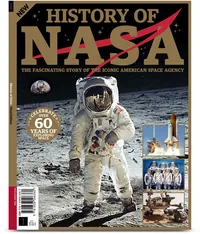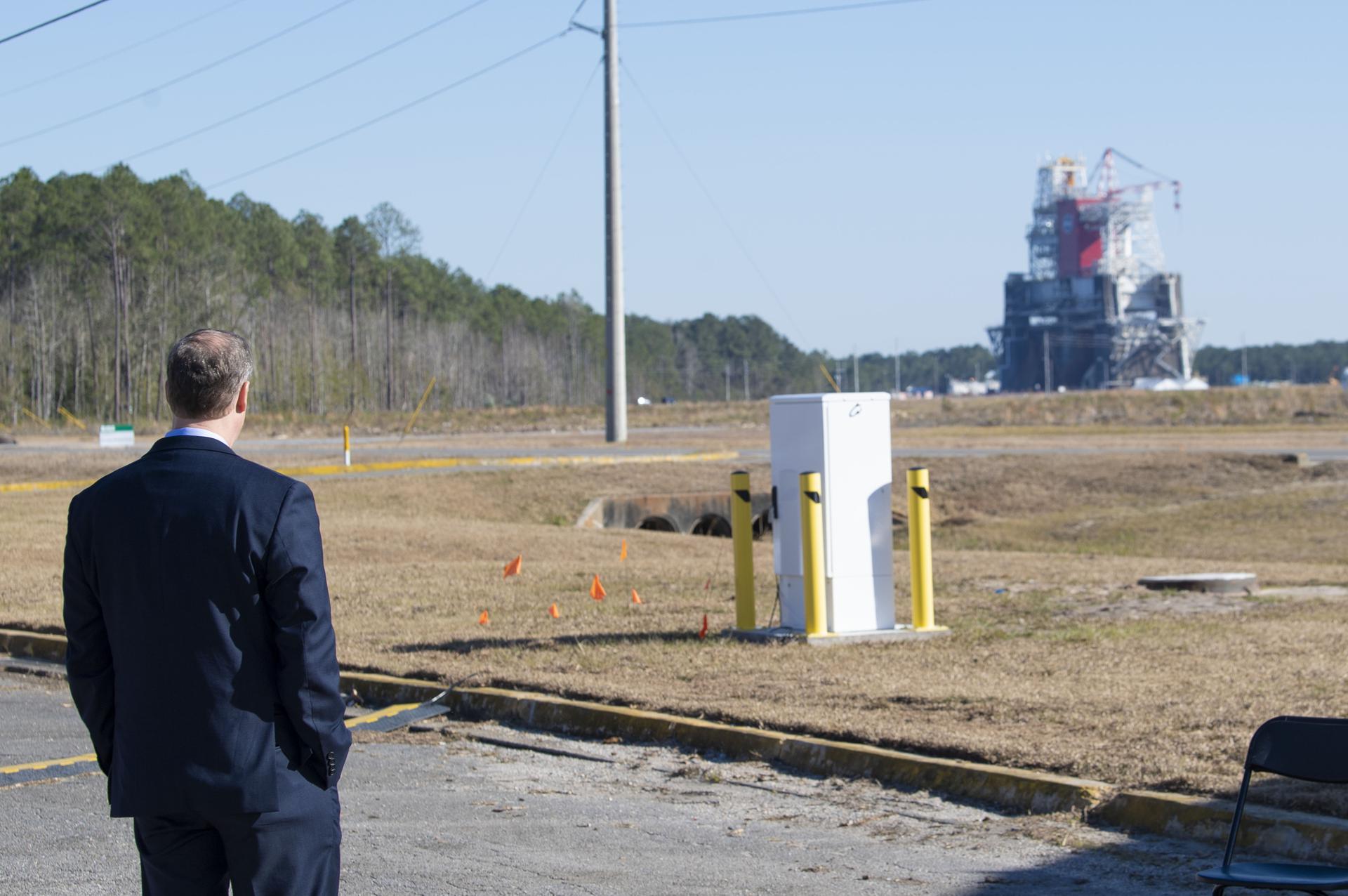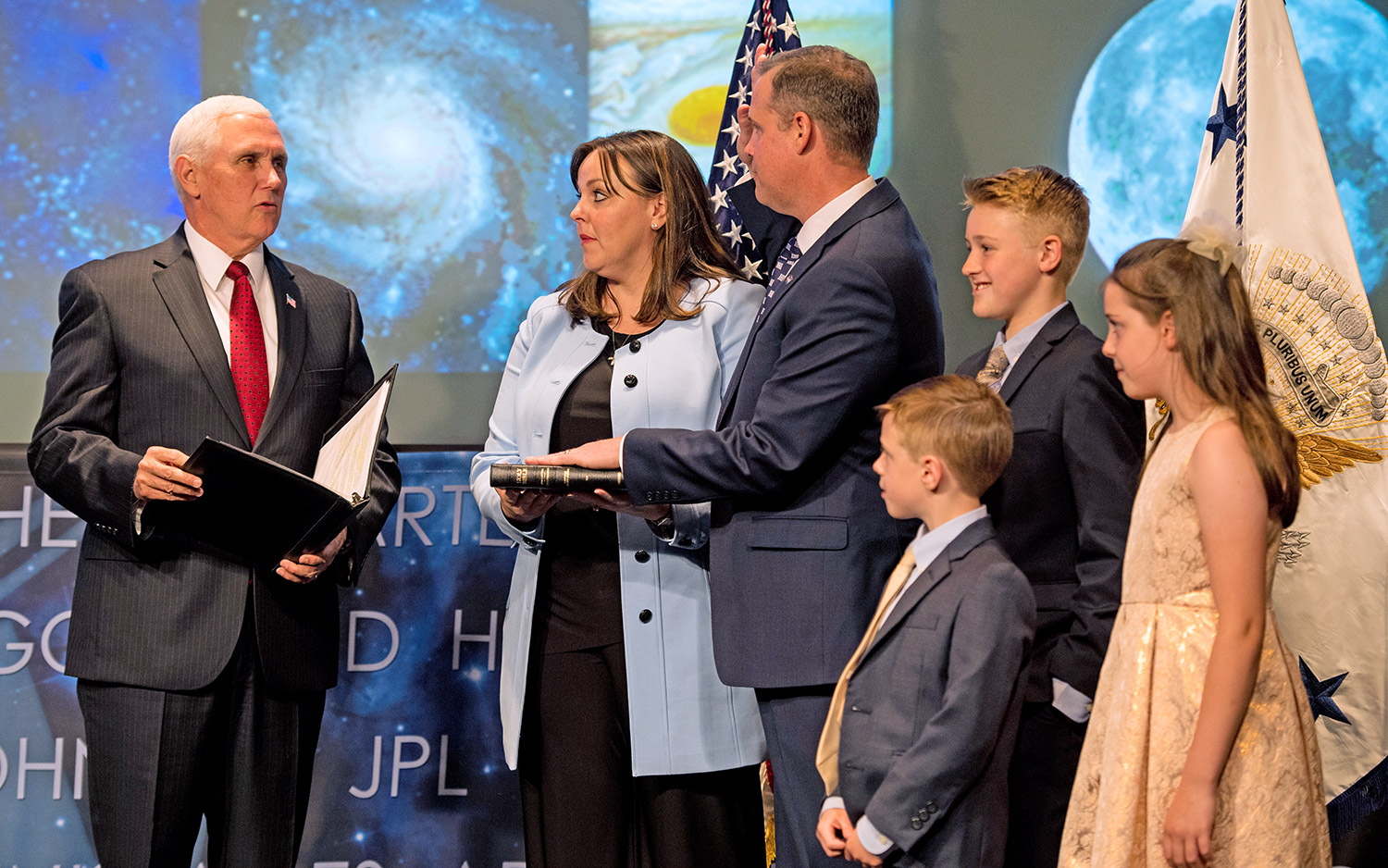Former NASA administrator Jim Bridenstine joins Acorn private equity firm
He'll join Acorn's Aerospace and Defense Fund V.

Breaking space news, the latest updates on rocket launches, skywatching events and more!
You are now subscribed
Your newsletter sign-up was successful
Want to add more newsletters?

Delivered daily
Daily Newsletter
Breaking space news, the latest updates on rocket launches, skywatching events and more!

Once a month
Watch This Space
Sign up to our monthly entertainment newsletter to keep up with all our coverage of the latest sci-fi and space movies, tv shows, games and books.

Once a week
Night Sky This Week
Discover this week's must-see night sky events, moon phases, and stunning astrophotos. Sign up for our skywatching newsletter and explore the universe with us!

Twice a month
Strange New Words
Space.com's Sci-Fi Reader's Club. Read a sci-fi short story every month and join a virtual community of fellow science fiction fans!
NASA's former chief Jim Bridenstine just joined a private equity firm that invests in the aerospace and defense sectors.
Acorn Growth Companies said the experience of Bridenstine, who resigned shortly after U.S. President Joe Biden took office Jan. 20, will be particularly useful for a new investment vehicle called Aerospace and Defense Fund V.
The fund is incorporated in Delaware, a common registration location for U.S companies, according to several online listings of companies. Bridenstine himself will be based in Tulsa, Okla., a powerhouse location for the aerospace industry, and will focus on up-and-coming companies in the sector.
Related: Outgoing NASA chief Jim Bridenstine calls for unity in space exploration pursuits
"Innovation is found in small and mid-market companies," Bridenstine, Acorn's new senior adviser, said in a statement Monday (Jan. 25). "I'm excited to join this firm and work with disruptors that provide needed innovation to the aerospace and defense industries."
"Jim's wealth of knowledge in the space, military, aerospace and engineering sectors will be invaluable," Rick Nagel, managing partner of Acorn, said in the same statement. Key focuses of Acorn and its portfolio companies will include investments in global mobility and intelligence, he added.
The Biden administration appointed senior-level NASA official Steve Jurczyk as acting administrator on Jan. 21, one of 34 acting leaders announced hours after the presidential inauguration.
Breaking space news, the latest updates on rocket launches, skywatching events and more!
History of NASA: $22.99 at Magazines Direct
Discover the story of how and why NASA was created, its greatest triumphs, darkest days, and of the times it exceeded all possible hopes. A tale of adventure, heroism and resourcefulness, learn of the space agency's greatest achievements and how — over six decades — the organization has consistently and tirelessly devoted itself to its founding principle: that "activities in space should be devoted to peaceful purposes for the benefit of all humankind".
Bridenstine is best remembered as being the NASA leader responsible for helming the Artemis program, after the Trump administration accelerated the agency's moon-landing plans to 2024. Late in 2020, eight nations signed U.S.-led Artemis accords for moon exploration and Canada announced it would send an astronaut around the moon in 2023 on a U.S.-led mission.
The 2024 deadline is subject to funding and having all the technical matters surrounding a moon landing ready; right now, one of NASA's key challenges is overcoming delays and glitches in testing the Space Launch System rocket that is set for an uncrewed mission later this year. Bridenstine also told Congress late in his tenure that he was concerned about receiving less budgetary funding than requested for Artemis human landing systems.
Bridenstine's NASA also launched efforts such as the Commercial Lunar Payload Services program to allow commercial participation in lunar missions, and continued development of large aerospace projects such as the X-59 flight demonstrator that is testing quiet supersonic technologies, Acorn noted. In planetary science, the Mars Perseverance rover, finished under his leadership, is set to land on the Red Planet on Feb. 18.
Bridenstine — a former U.S. Navy pilot, executive director of the Tulsa Air and Space Museum and Planetarium, and Republican Congress representative for Oklahoma — was confirmed as NASA administrator in April 2018. His appointment drew support from the aerospace industry, but he faced unprecedented political contention during the nomination process.
Follow Elizabeth Howell on Twitter @howellspace. Follow us on Twitter @Spacedotcom and on Facebook.

Elizabeth Howell (she/her), Ph.D., was a staff writer in the spaceflight channel between 2022 and 2024 specializing in Canadian space news. She was contributing writer for Space.com for 10 years from 2012 to 2024. Elizabeth's reporting includes multiple exclusives with the White House, leading world coverage about a lost-and-found space tomato on the International Space Station, witnessing five human spaceflight launches on two continents, flying parabolic, working inside a spacesuit, and participating in a simulated Mars mission. Her latest book, "Why Am I Taller?" (ECW Press, 2022) is co-written with astronaut Dave Williams.



